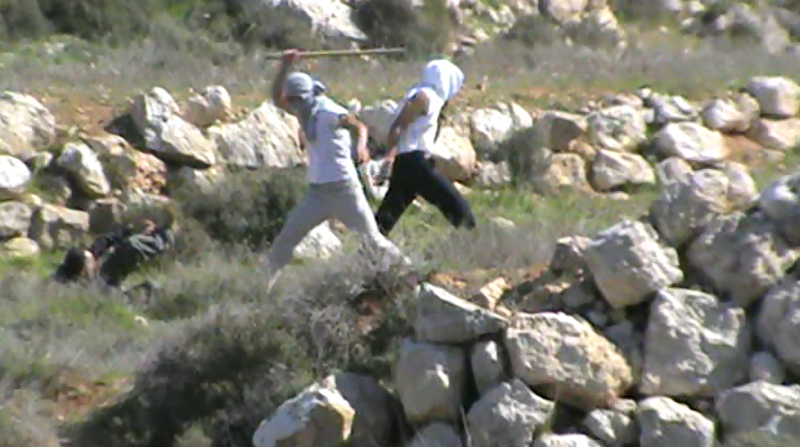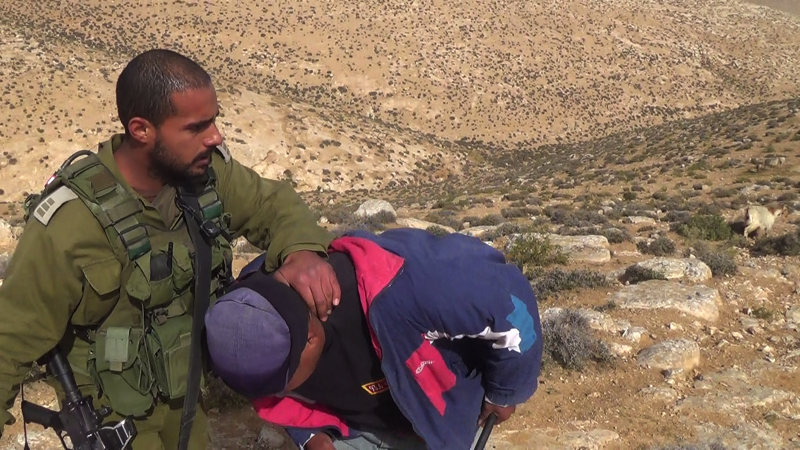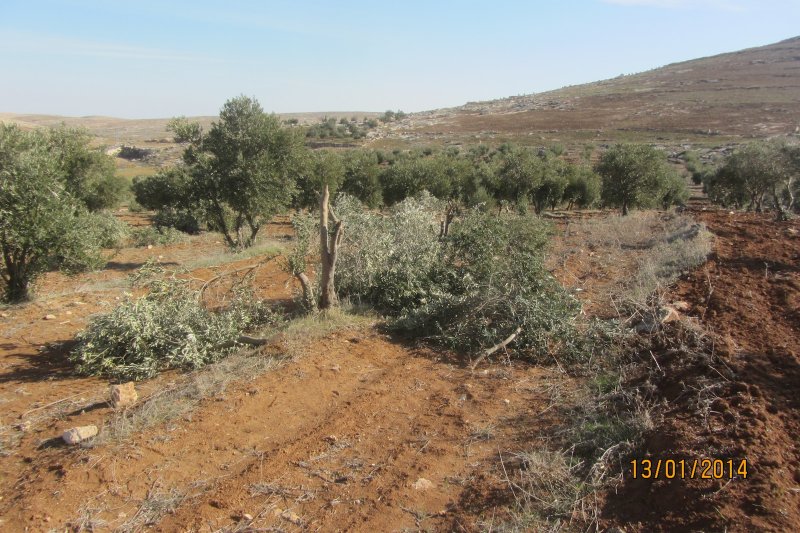Tag: South Hebron Hills
-
Settlers attack Palestinian shepherds, Israeli activists and internationals during nonviolent action in South Hebron Hills
8th February 2014 | Operation Dove | At Tuwani, South Hebron Hills, Occupied Palestine On the morning of February 8, 2014, during a nonviolent action claiming the right of Palestinians to access their own land, a group of settlers from the illegal outpost of Mitzpe Eshtamoa attacked Palestinians, Israeli activists and internationals with stones and sticks,…
-
Six arrests in three days in South Hebron Hills
January 20th, 2014 | Operation Dove | Hebron, Occupied Palestine Between January 18-20, four Palestinians and two Operation Dove (OD) volunteers were arrested by the Israeli police and army while Palestinian shepherds were grazing their flocks. On January 18 at 1:04 p.m. seven settlers came out from the illegal outpost of Havat Ma’on (Hill 833), entered…
-
20 olive trees destroyed in the South Hebron Hills area of At Tuwani
13th January 2013 | Operation Dove | At Tuwani, Occupied Palestine This morning Palestinians discovered 20 olive trees destroyed alongside bypass road 317 in the South Hebron Hills area of At Tuwani. The olive tree groves belongs to the Al Amor family from At Tuwani and had been planted 34 years ago. At 9.35 am the owners,…



